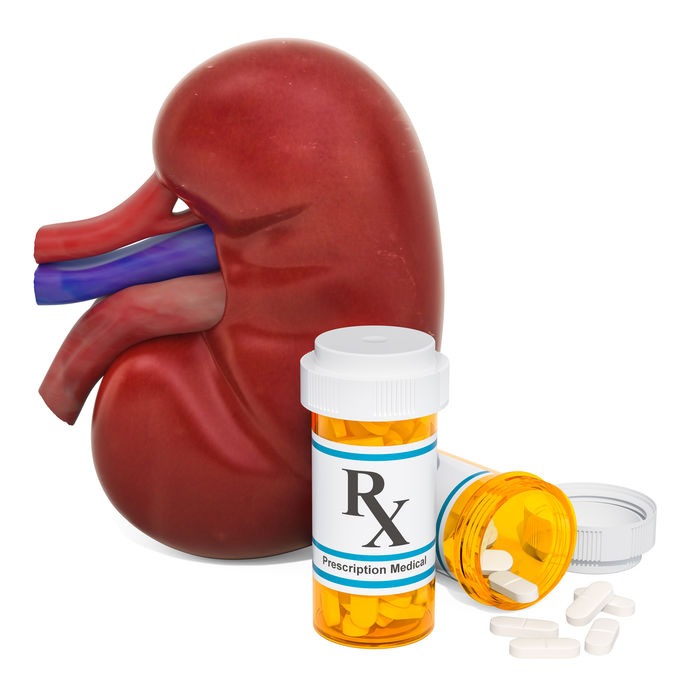Kidney Stones / Urology
Kidney Stones Treatment: Which treatment might suit you?

by admin
23rd December 2019
5 minutes read
If you have consulted a doctor for kidney stones, then he might have suggested treatment options. Kidney stone treatment depends on the size and symptoms of the stones. The doctor conducts some tests to know the size of the kidney stones. Once they know the size of the stones, they consider different treatment options. These options are as follows.
Small Stones
If the stones are small, then the doctor usually suggests non-surgical methods to pass the stone. These methods are:
-
Drinking water and pain relievers: This treatment focuses on passing the kidney stones by drinking water and taking pain relievers to help with the pain. The doctor also suggests the patient drink approximately 2 litres to 3 litres of water. This may help to flush out the urinary system and thus may pass the stones. The passage of stone might be a bit painful, hence the doctor usually subscribes pain relievers.
-
Medication: The doctor may prescribe ‘alpha blockers’ which relax muscles in the ureter. As a result, kidney stones may pass easily and quickly but with less pain.
Large Stones
If the stones are large and are causing symptoms, then the doctor may suggest surgical treatment for the same. There are several surgeries and doctor suggests the surgery which is most suitable for your condition:
-
Extracorporeal Shock Wave Lithotripsy (ESWL): Kidney stones are crystalline in nature. Depending on the location and size of the stones, your doctor might suggest ESWL. In this method, the doctor uses sound waves to break the crystalline stone into smaller stones. These smaller stones then pass through the urinary tract. This procedure may take at most 1 hour. Your surgeon may give anesthesia to avoid discomfort and mild pain.
-
Percutaneous Nephrolithotomy (PCNL): If your ESWL surgery was unsuccessful, then the doctor may suggest this procedure. In Percutaneous Nephrolithotomy (PCNL), a small incision is made to remove the kidney stones. The doctor makes a small incision in the back. Then he/she uses a nephroscope (a thin viewing tube) to locate and then remove the kidney stone. If the kidney stone is large then there is a chance that the surgeon will use a laser to break it into smaller pieces. During the surgery, the patient is under general anesthesia and has to stay in the hospital for a few days to recover.
-
Ureteroscopy: If the kidney stone is stuck in the ureter or bladder, then the doctor may suggest ureteroscopy. In ureteroscopy, the surgeon passes a thin-lighted tube – ureteroscope (it has a camera) through urethra and bladder and then to the ureter. The surgeon then looks at the detailed images of the kidney and lining of ureters. When the surgeon finds the stones he/she removes them. In the entire surgical procedure, the patient is under anesthesia. The doctor might let the patient go home on the same day.
Parathyroid Gland Surgery:
There are four types of kidney stones. One of them is calcium stones, which are caused due to too much calcium in the blood. For the treatment of such type of kidney stones, the doctor might look into the causes of it. If the excessive calcium is found out to be because of overactive parathyroid glands, then the doctor might treat that specific problem.
Usually, the doctor treats the condition that leads to overactive parathyroid glands. Parathyroid glands are located in the four corners of the thyroid gland. When these glands produce too much calcium, your calcium level might increase which might lead to kidney stones. So the doctor may suggest treatment for the condition or surgery to remove the growth of the gland. This will control the calcium level and will help in preventing the formation of kidney stones in future. Consult your doctor regarding this matter.
There is also a chance that the doctor may leave a thin flexible tube called a urethral stent in the urinary tract. This will help the stone to pass or help in urine flow. You can consult your doctor to know when they will remove it.
In all the above cases, the doctors sends the stone to analysis after the surgery. This helps them understand the type of kidney stone. Once they know the type, they can try to understand the cause for it. Later the doctor can suggest some prevention method depending on the type of stones so that it does not occur again.
We at Medfin , the Surgery expert team, offer you access to the latest and most advanced treatment for elective surgeries at the most affordable costs. Our Personal Medfin assistants answer all your concerns related to surgery and ensure that your needs are met in your entire medical journey.
To consult an expert Medfin surgeon near you, please call us on 7026200200. You can also WhatsApp us on 7406557599 (click here to initiate a whatsapp chat).
CATEGORIES
- ACL Reconstruction
- Anal Fissures
- Anal Fistula
- Appendicitis
- ASK A DOCTOR
- Benign Prostatic Hyperplasia
- Breast Lump Excision
- Cataract
- Circumcision
- Conditions & Diseases
- Cosmetology
- Covid-19
- Cure
- Endocrinology
- ENGLISH VIDEOS
- Eye Care
- Gallstones
- General Surgeries
- Government Schemes
- Gynaecology
- Gynecomastia
- Gynecomastia
- Health
- Health Insurance
- Hernia
- hindi
- Hip Arthoscopy
- Hip Replacement
- Hip Replacement Surgery
- Hydrocele
- Kannada
- Kidney Stones
- Knee Arthroscopic
- Laparoscopic
- LASER
- Latest Treatments
- Lifestyle
- Liposuction
- Medfin Stories
- Medicine
- Nephrology
- Ophthalmology
- Orthopaedic
- Paraphimosis
- Patient Testimonials
- PCL Reconstruction
- Phimosis
- Piles (Hemorrhoids)
- Pilonidal Sinus
- Proctology
- Prostate Artery Embolization
- Rhinoplasty
- Second Opinion
- Total Knee Replacement
- Uncategorised
- Urology
- uterine artery embolization
- Uterine Fibroids
- Varicocele
- Varicose Veins
- Vascular
- VIDEOS






